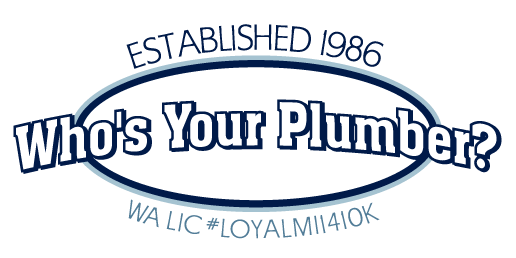Eco Friendly Ways to Clean your Drain
Your drain is clogged again. You prepare to wage war on your sink, suiting up in your thick yellow gloves and holding your breath while you pour more chemicals down the drain. You put the bottle back on the top shelf, well out of the kids’ reach, wondering how many of those chemicals end up in the ocean. Nemo doesn’t like Drano, so next time your drain is clogged, consider some of these environmentally friendly drain cleaning alternatives.
Use a plunger and elbow grease
Many people only think of plungers to unclog toilets, but Standard Cup Plungers (the wood-handle-red-cup plunger you picture when you hear “plunger”) are actually designed to unclog sinks and bathtubs because they best adhere to flat surfaces like those surrounding bathtub or sink drains. Before using chemicals, try a plunger to remove the blockage manually.
First, remove the drain cover. Then, place a small towel over the overflow drain (the small backup drain most sinks and bathtubs have). Put a thin layer of petroleum jelly on your plunger, and place it around the drain. Turn on the water and plunge up and down quickly. Repeat as many times as necessary.
- Homemade solution #1: Baking soda and vinegar
Harness the power of a science fair volcano to clear your drain. First, pour a pot of boiling water down the drain or let the faucet run hot water for a few minutes. After that, pour about half a cup of baking soda down the drain. Then, follow the baking soda with the same amount of vinegar. Let it sit for about ten minutes then rinse again with hot water. Make sure to secure your drain cover. For stubborn drains, add another half cup of vinegar to strengthen the reaction.
- Homemade solution #2: Baking soda and lemon juice
When life gives you lemons, use them to clean your drain. Lemon’s acidity can help break down grease and gunk that gets stuck in your sink. First, clean the area around your drain with a sponge to get rid of any preliminary debris. Then, pour a few cups of boiling water down the drain. Follow that with eight ounces of baking soda and eight ounces of lemon juice. After a few minutes, pour another few cups of boiling water down the drain to eliminate any remaining blockages.
Bonus tip: Putting leftover lemon wedges down the garbage disposal instead of waste bins can help keep your garbage disposal clean.
Purchase natural, biodegradable drain cleaning alternatives
If you don’t want to dabble in do-it-yourself chemistry, try one of these store-bought environmentally friendly drain cleaners. Products such as Bio-Clean Bacteria Waste Eliminator and Earth Enzymes Drain Opener use only eco-friendly ingredients and biodegradable compounds. These products cut down on chemical bi-products and don’t have the harsh odors that many other cleaning products produce.
Nip the problem in the bud
Avoid having to use any cleaning products at all by adopting better practices to avoid drain clogs. Preventative measures such as keeping coffee grounds out of the sink, using a drain-grate to catch hair, and putting cooking grease in a can and throwing it away instead of down the drain can stop clogs before they happen. Additionally, cleaning the drain is probably at the bottom of your to-do list, but spending a few minutes each week can prevent a huge problem down the road. Instead of waiting until things get bad, take a little extra time to clean up so things don’t build up. Pour some boiling water and a little baking soda down the drain each week, to maintain cleanliness.
Whether your old apartment building’s pipes keep clogging, or your shower drain can’t keep up with your four daughters’ long hair, maintaining your drains in an eco-friendly way is important for the environment and your family’s health. Ditch the hazmat suit, keep toxic chemicals away from the kids, and consider these eco-friendly solutions next time you’re cleaning your drain.
A few tips from Grandma:
Old wives’ tales and homemaker remedies to household problems have existed since the dawn of the American family. The Internet is a rife place for rumors and myths, so we thought we'd take some time to fact-check a few of the more common household remedies for sewer and plumbing issues around the house. Here’s what we’ve found:
How Do I Safely Degrease the Drain?
Homeowners learn quickly not to put bacon grease down the kitchen sink, but potato skins, coffee grounds, and other food items can do some serious damage to your pipes if you try and wash them down the drain. Commercial liquid drain cleaner can eat away at pipes and harm the environment, so we'd recommend the following solution:
- Answer: Disconnect the Trap
The P-Trap under your sink is the most likely spot where grease is caught in your plumbing. By disconnecting it and clearing it out manually, you can prevent clogging right at the source. Keep an old jar handy to dump your bacon grease and avoid the problem for the future!
My Drain Smells - What About Lemon Juice?
Homemakers have often said putting lemons down the drain will keep it smelling clean and clog-free. Unfortunately, the smell doesn't last and the citric acid will corrode your pipes.
- Answer: Baking Soda
Periodically putting a small amount of baking soda down your drain will keep eliminate odor and provide a safe, neutral smell that won't do nasty things to your pipes.
How Do I Sharpen the Blades in My Garbage Disposal?
Again, it was common to use lemons not only as an odor-reducer, but putting a whole lemon in the drain was considered the best way to sharpen the blades of a garbage disposal.
- Answer: Use Ice
The citric acid from lemons will harm your pipes - using a few cubes of ice in your disposal and letting it run with running water for about 30 seconds will actually sharpen your blades pretty nicely. No mess, no fuss, no damaged pipes!
For more information on how to best care for your pipes, contact Pioneer Plumbing and Heating. Our expert plumbers and technicians can help you through small plumbing maladies all the way up to new constructions. Give us a call today!






